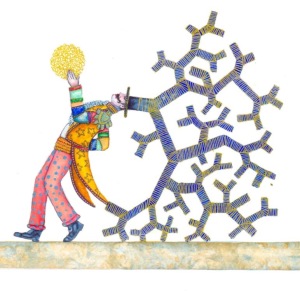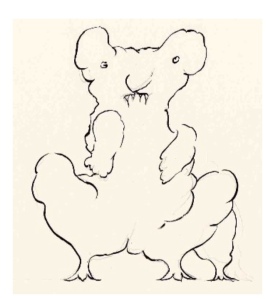
I am very pleased that my Josie O. part of me is in a book along with 99 (!) other comics artists. Each of us had a brief to draw a positive political action that anyone could take. Mine is about picking up the phone to support someone who might be fearful, even if you don’t know what to say.
We began the project the year that xenophobia and regressive, racist politics re-gained a mainstream foothold in my home country. In among the shock and grief, I felt that drawing something to encourage action, despite not being perfect at it, made sense in a nonsense world.
I never think of myself as a comics artist. I love drawing what a friend calls ‘your doodles’. But I’m not particularly professional about it. Gosh (Zap! Pow!) Saying that feels like a sin. The idea of doing something occasionally because I like it – of being an amateur – even allowing myself to be not totally good at it, a little unskilled in the corners… is risky. There’s another, harsher part of me that judges my inner doodler. But drawing is my way of experimenting.
And then people often like it despite it’s awkwardness of line. Someone says …the faces are lovely…, there’s something in the line… or invites me to make them a treasure for their wall. Last month a piece by me was a prize in a draw! I am humbled by such things.
I’m alongside some dedicated professionals in this book. People who spend their lives honing a skill. Don’t get me wrong, I know what it takes to become a professional and I don’t disrespect it, nor the time it takes. And I know if I drew every day I’d get better. But I write at the moment. And slowly that improves. And then there’s the slow art of being human as well. I try to work on that, and take actions where I can to stop the rot.
Meanwhile, there’s a web version of Draw the Line if you click the pic.







